Who is suitable for TURBT?
What are the advantages of TURBT?
How is TURBT performed?
What to expect after TURBT?
Procedure outcomes
Bladder tumour resection (TURBT) is the most common treatment for bladder cancer in the early stages or cancer that is superficial (has not spread to the muscle layer in the bladder wall). This is usually the first treatment patients receive for bladder cancer, since in most cases (up to 70%) patients have superficial cancer when they are first diagnosed. Sometimes, patients will receive a second TURBT treatment in order to ensure that all the cancer has been removed.
Doctors Shekib Shahbaz and Tony de Sousa at Melbourne Urology Centre are highly experienced in performing this procedure. They provide a personalised service and can discuss with you in detail whether this is a suitable treatment option for your condition.
Who is suitable for TURBT?
TURBT may be an appropriate treatment option for patients that:
- Are suspected to have bladder cancer; TURBT can help to confirm a diagnosis and determine the extent of the cancer
- Have been diagnosed with early stage bladder cancer
- Have bladder cancer that has not spread to the muscle layer in the bladder wall
What are the advantages of TURBT?
- TURBT allows patients to keep their bladder and only remove the cancer
- No skin incisions required
- Very low risk of injury to or infection in the bladder
- Can be performed safely multiple times, if required (for staging or recurrence)
How is TURBT performed?
- This procedure is performed either under general or spinal anaesthesia
- A type of small telescope (cystoscope) is inserted through to the bladder, via the urethra
- No skin incisions are made
- A small wire loop at the end of the cystoscope is used to remove the cancerous or abnormal tissue
- Most patients will remain in hospital with a urinary catheter in place for 1-2 nights.
What to expect after TURBT?
- Light duties and daily activities can usually be resumed in a few days following the procedure
- Complete recovery from a TURBT can take 2 to 4 weeks, during which time strenuous activity and heavy lifting should be avoided
- It is normal to see some blood in the urine for up to two weeks following the procedure
- Other possible side effects include discomfort or burning with urination and bladder infection. Uncomfortable symptoms generally resolve within two weeks following the procedure. Antibiotics may be prescribed to prevent infection.
Procedure outcomes
TURBT is often the first line of treatment for early bladder cancer. The tumour or tissues that are removed in the procedure are sent to a pathologist for review. The pathologist can determine the stage of the cancer and whether there has been any spread to the muscle.
In cases of cancer that hasn’t invaded the muscle wall of the bladder, TURBT may be enough to eliminate the cancer. The urologist may recommend additional treatments such as chemotherapy or immunotherapy, to reduce the risk of the cancer returning. However, if the cancer has spread to the muscle layer, additional treatments including surgical removal of the bladder may be required.
Bladder tumour resection (TURBT) Post-Operative Care Instructions
What to expect:
- Blood in the urine is common for 2-4 weeks following surgery, but may take longer to resolve. It may be intermittent, as the lining of the internal layer of the bladder takes time to heal.
- Urinary frequency and urgency as well as nocturia (urinating at night time) typically settles within 4 weeks, but may persist longer
- Burning and stinging with urination may last for days or weeks following surgery. This is part of the healing process, and not usually indicative of infection.
Return to activity:
- Driving – no driving for 2 weeks following surgery unless advised by your surgeon
- Work – you will require some time off work; the duration will depend on your occupation
- Lifting – avoid heavy lifting for at least 2 weeks following surgery, to minimize the chance of secondary bleeding
- Activities – walking is fine and encouraged following your procedure, however you should avoid strenuous activity for 4 weeks following your procedure
- Sex – avoid for 2 weeks following your procedure.
Pain Management:
- You may take ibuprofen or paracetamol if you are experiencing discomfort
- You may take Ural (available over the counter at the chemist) to relieve burning and stinging with urination
Head directly to your nearest hospital emergency room if:
- You are unable to urinate or are passing large blood clots in the urine
- You have severe abdominal pain or distension
- Fevers, chills or shakes (may indicate infection)
Follow-Up Information:
Our rooms will phone you to arrange a follow-up appointment with your Urologist to discuss the results of the pathology.
Your follow-up appointment is on: ____________________ at __________________.
Contact Information:
If you have any questions or concerns that are not addressed here or in the procedure information available on our website melbourneurologycentre.com.au contact our rooms on 1300 702 811 or [email protected]
Post-Operative information for this procedure can be found here: Bladder tumour resection (TURBT) Post-Operative Care Instructions
Written by Dr. Shekib Shahbaz and Dr. Tony de Sousa
European Association of Urology, (2021), Transurethral resection of the bladder (TURBT),[ [https://patients.uroweb.org/treatments/turbt/], accessed 28/02/21.
Mostafid, H., Kamat, A. M., Daneshmand, Palou, J., Taylor, J. A., S., Catto, J.,McKiernan, J., Babjuk, M., Soloway, M., (2020), Best practices to optimize quality and outcomes of transurethral resection of bladder tumours, European Urology Oncology, 4(1), [ https://www.sciencedirect.com/science/article/pii/S2588931120300882?via%3Dihub], accessed 28/02/21.
